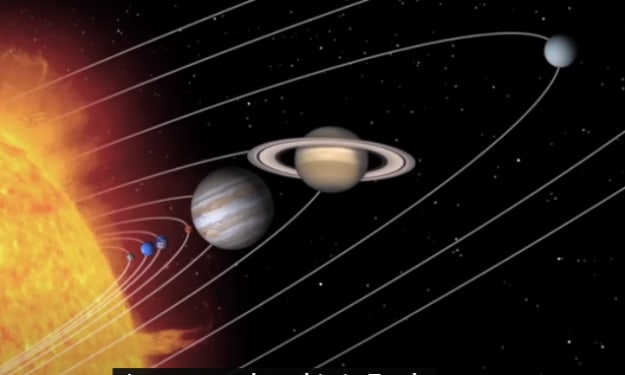5 Things You Might Not Have Known About Music
Inspired and Learned From the PBS Documentary 'Musical Brain' and My Music 100 Class

What is music? Music is sound, silence, science, a mechanism that can portray and effect emotions. I started my first semester of college, Music 100 is one of my classes. During our last class period we watched the PBS documentary called The Musical Brain, it features Dr. David Levitin and award-winning musicians like Sting and Michael Buble. Covering the emotional and physical effects of music my teacher gave us an assignment I assume was to keep our attention during the showing. "Make a list of ten things you did not know about music," she said. Below are five of the ten I wrote down. I recommend this documentary for those that might be like me, interested in science but still have a passion for the arts.
1. Music does not exist outside of the brain.
Music is sound and silence gathered in organized time, music is science but it is also a beautiful art that can draw out raw responses from its listeners in various ways. It’s a phenomenon that we listen to and respond to. But silence and dramatic pauses are also a part of music. Sound is funneled into the ear and enters the brain by nerves and the brain determines what it is and how to respond to it. But outside of your head all that is music is just molecules moving.
According to the National Institute of Deafness and Other Communication Disorders (NIDCD), sound waves enter via the outer ear and travel through the ear canal to the eardrum. The eardrum vibrates from the sounds waves and sends those vibrations to the body's three smallest bones in the middle ear. Those bones amplify the vibrations and send them to the cochlea, a spiral anatomical structure that is filled with fluid. After that, an electrical signal is eventually created and sent to the brain which turns it into what we call “sound.”
2. When you listen to music the brain secretes dopamine, and 3. The brain is constantly looking for pleasure.

When you get that happy feeling, singing along in the car, Katy Perry or maybe Slipknot on the radio, something happens to your brain. It’s not anything bad, it just secretes a hormone called dopamine that causes the happy sensation. Your body also uses this when you eat, do drugs, or have sex. There isn’t a reason this happens, music is not a life essential (though it may feel like it). Food is essential because you need it for energy, sex is essential for reproductive purposes, and I don’t even want to try and justify drugs.
4. It isn’t widely known in the species kingdom to be able to synchronize with one another musically.

It is possible for animals to move to the beat of music like that bird “snowball” who went viral for dancing to music. But as for synchronizing together with music, humans are really the only species to do so. Elephants can beat a drum but not together at the same time or same rhythm. Also, when humans play together, another hormone is secreted. This one is called oxytocin.
5. Alzheimer’s patients can remember music just fine but will forget just about everything else.
In the above-mentioned documentary, there is a scene where a little old lady who has Alzheimer’s disease remembers music from the 1960s and gets happy and sentimental when she hears it. But her husband visits ever day, and by the next day, she doesn’t even remember that. It’s a proven hypothesis that music is more easily remembered by dementia effected people.
About the Creator
Kaylee Chaffin
I'm a young writer who is majoring in Biology but enjoys this and photography as a ruse to pass off time. I enjoy rock music above all and am particularly fond of 80's music.






Comments
There are no comments for this story
Be the first to respond and start the conversation.